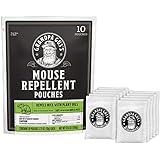
ANIMAT3D Jabberin' Jack (Blink Tech) Talking Animated Pumpkin with 8 Inch Screen and Built-in LED Light Array Projector + Speaker Includes 40 Minutes of Content
14% OffIntroduction
When it comes to our beloved pets, we want to ensure they live their best lives. One fascinating trend in pet nutrition that has been gaining traction is the incorporation of fermented foods into their diets. You might be wondering, what exactly are fermented foods, and how can they benefit our furry friends? In this article, we’ll delve into the world of fermented foods for pets, exploring the potential benefits, considerations, and how to safely introduce them into your pet’s diet.
Understanding Fermented Foods
What Are Fermented Foods?
To put it simply, fermented foods are those that have undergone a natural process of fermentation. This involves the breakdown of food by microorganisms like bacteria, yeast, or fungi. The result? A transformation of the food’s chemical structure, often making it more digestible and packed with beneficial nutrients.
A Journey Back in Time
Fermentation isn’t a new concept; it’s been around for centuries. Think of sauerkraut, kimchi, or yogurt in human diets. Now, pet owners are recognizing the potential of these ancient practices for their furry companions.
The Potential Benefits of Fermented Foods
Digestive Health
Just like for humans, fermented foods can work wonders for your pet’s digestive system. The beneficial bacteria produced during fermentation can help maintain a healthy gut microbiome, which is crucial for proper digestion.
Nutrient Boost
Fermentation can enhance the nutrient content of pet food. It can increase the availability of essential vitamins, minerals, and amino acids, ensuring your pet gets the most out of their meals.
Improved Immunity
A strong immune system is essential for pets to ward off illnesses. Fermented foods can contribute to a well-balanced immune response, potentially reducing the risk of infections.
Better Coat and Skin
Healthy skin and a shiny coat are signs of a happy pet. Fermented foods can promote skin and coat health, thanks to their potential to address underlying digestive issues.
Safety Considerations
Consulting Your Vet
Before introducing any new dietary elements to your pet’s regimen, it’s crucial to consult your veterinarian. They can assess your pet’s individual needs and help you make informed decisions.
Start Slowly
If your vet gives the green light, start with small amounts of fermented foods and monitor your pet’s reaction. Gradual introduction can help prevent digestive upsets.
Incorporating Fermented Foods
Homemade vs. Commercial
You have two options when it comes to fermented pet food: making it at home or purchasing commercial products. Both have their pros and cons, so choose what works best for you and your pet.
Types of Fermented Foods
Fermented foods come in various forms. You can find fermented kibble, canned food, or even treats. Experiment to see what your pet prefers.
Success Stories: Real-Life Testimonials
Case Studies
Let’s take a look at some real-life cases where pets benefited from fermented foods. These anecdotes can provide insights into what you might expect when you introduce them to your furry companion’s diet.
Common Misconceptions
Myths Debunked
There are some misconceptions surrounding fermented pet food. We’ll debunk these myths and provide you with evidence-based information.
Conclusion
Incorporating fermented foods into your pet’s diet can be a game-changer for their overall well-being. From digestive health to a shiny coat, the potential benefits are remarkable. However, remember that every pet is unique, so consult your vet and take it slow. Your furry friend’s journey to better health starts with a little experimentation and a lot of love.
FAQs
1. Can I ferment pet food at home?
Absolutely, but it requires knowledge and careful handling. It’s often easier to start with commercial options.
2. How long does it take to see the effects of fermented foods on my pet’s health?
Results can vary, but you might notice positive changes within a few weeks of introducing fermented foods.
3. Are there any risks associated with feeding fermented foods to pets?
Generally, no, but always consult your vet to ensure it’s suitable for your specific pet.
4. Can I feed my pet fermented human foods?
It’s best to stick to pet-specific products to ensure they meet your pet’s nutritional needs.
5. Are there any pets that shouldn’t have fermented foods?
Pets with certain medical conditions or dietary restrictions should avoid fermented foods unless advised otherwise by a vet.











